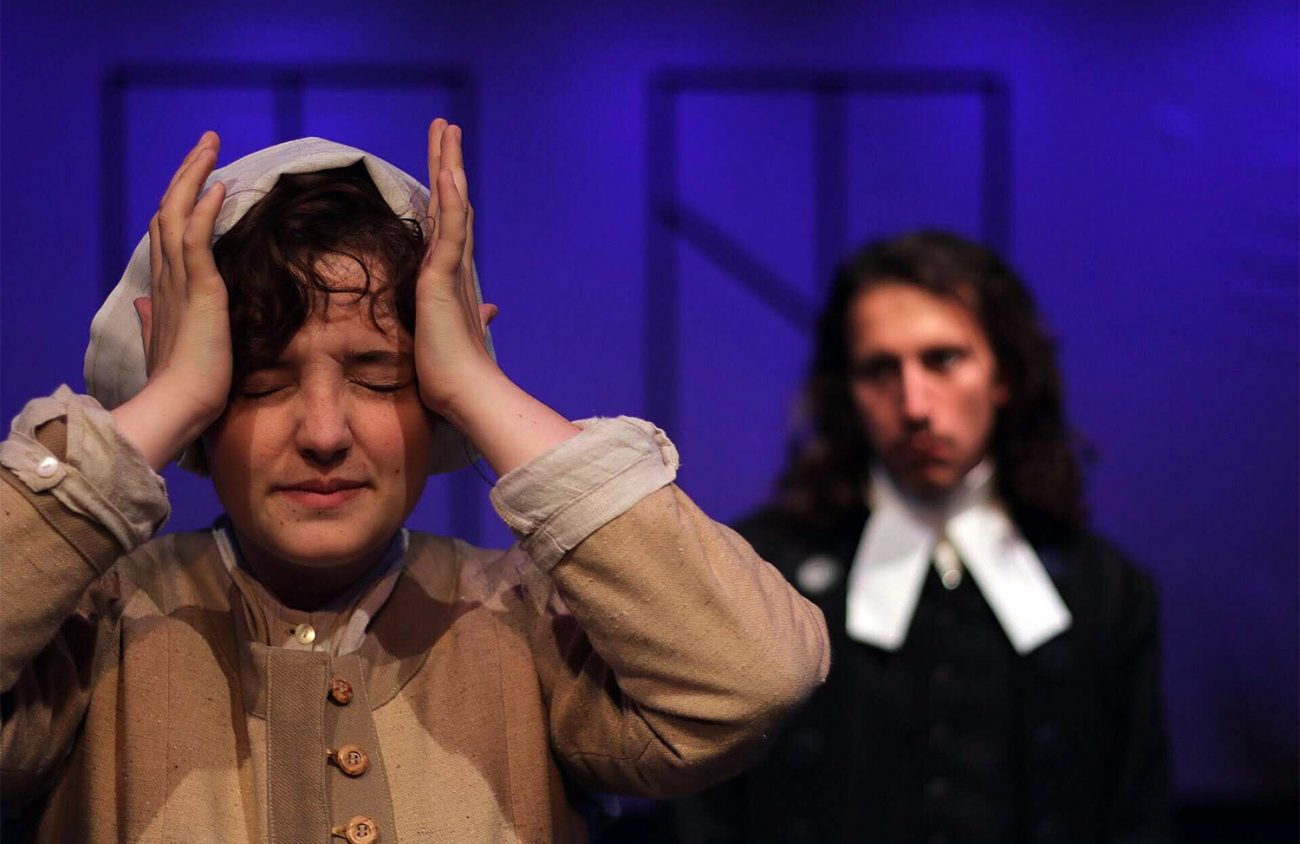Arthur Miller’s The Crucible is a set piece in American theater, one of those cultural landmarks of which more people know and talk than have ever actually seen or enjoyed it. We all know the story, whether we’ve seen it or not: Miller’s gripping tale of the Salem witch trials of 1692 is really about Sen. Joseph McCarthy’s anti-Communism hearings of the 1950s. Got that?
So when the play’s Rev. John Hale announces, “This is a strange time, mister. No man may longer doubt the powers of the dark are gathered in monstrous attack upon this village,” we know whereof he speaks. We live in our own strange times amid powers of the dark, and we are obsessed with our own 21st-century witch-hunts.
All of which is why it was necessary, if not necessarily a good idea, for Cottage Theatre to do a production in 2018 of Miller’s 1953 play, which won the Tony Award for Best Play and probably helped propel the playwright into his own confrontation with the House Un-American Activities Committee in 1956.
Director Joel Ibáñez offers a straight-ahead rendition of the story, avoiding — thankfully — the temptation to lace the production with explicit references to our current political situation. The show moves right along on a simple but not terribly elegant set designed by Ibáñez and lead actor Kory Weimer, powered by the straightforward drama of its script and by the large cast’s (19 named roles — no one writes plays like this anymore) overall high skill.
During the three-hour show we relish the creeping horror built by a steady drumbeat toll of the convicted and hanged.
Weimer (most recently Hyde in CT’s excellent Jekyll and Hyde) shines as John Proctor, bringing an intense physical energy to the role of the hot-headed farmer who struggles to come to terms with his wife Elizabeth’s (played solidly by Brittany Dreier) conviction and death sentence for witchcraft.
Courtney Roberts, back on stage after a three-year absence, is outstanding as Abigail Williams, the sultry housemaid whose previous affair with Proctor complicates his and Elizabeth’s ability to fight the charges against her and the resulting charges against him.
In the end, though, Miller’s play may have been outstanding in 1953, but it feels a little stale today. The issues are too crisp and easy here, and nothing in The Crucible addresses the deeper questions around popular delusions, whether witchcraft in the 17th century or satanic ritual abuse in the 1980s. How do otherwise decent people so easily succumb to inane cruelty?
Yes, Miller sketches out how popular fear is exploited by people with private motives, whether financial gain or personal vengeance.
The most nuanced character in the show is the Rev. Hale, well played here by James Scoggins. Hale has been dispatched to Salem as an investigator, and arrives in town a true believer; by the time the play wraps up, he is desperately trying to get imprisoned women and men to confess to charges he knows to be false so they can avoid the gallows.
But, for the most part, the people of The Crucible come across as either villain or victim, and the world and its delusions are far more complicated than that
The Crucible continues at Cottage Theatre in Cottage Grove through June 24. Tickets are $25, $15 for 18 and under, at cottagetheatre.org.
